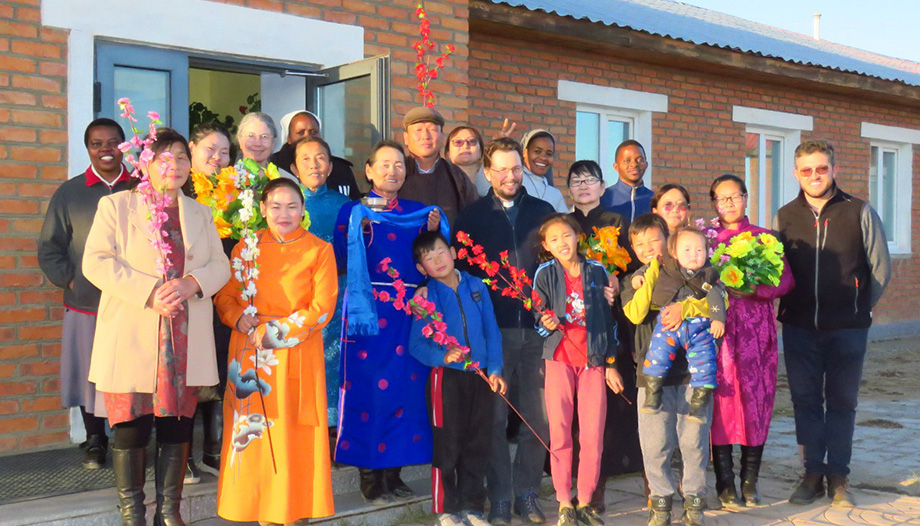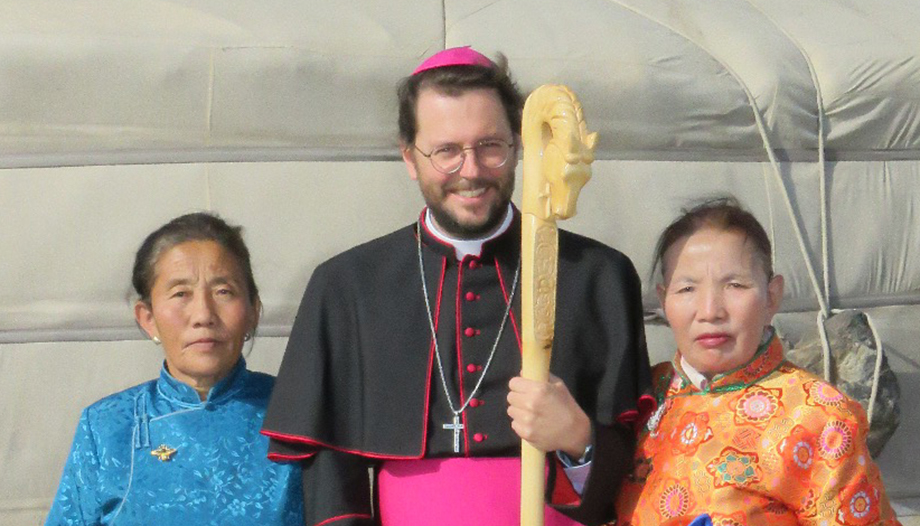"To think of appointing a bishop who leads a small and minority Church as a cardinal is a great missionary gesture". Father Giorgio Marengo, Apostolic Prefect of Ulaanbaatar, the capital of Mongolia, was in Rome when he was surprised to learn of his appointment as Cardinal: "In those days - says the Consolata missionary - I had accompanied a delegation of Mongolian Buddhists to the Holy Father: it was the first time this had happened. We had just concluded this beautiful and historic initiative of inter-religious dialogue when, during the Regina Colei on Sunday, May 29, I heard the Pontiff call my name. At that moment I was overcome with a very strong joy and a feeling of deep gratitude and humility.
The Church led by Monsignor Marengo in the East Asian country is very small: 1,400 faithful out of a little more than three million inhabitants, eight parishes and one public church that is not yet recognized as a parish.
"Here, the majority of the population is of Buddhist faith, while Catholics do not reach 1%. It is different for Protestant Christians - Evangelicals and Pentecostals - who are more numerous than Catholics," adds Monsignor Marengo.
What is the work of evangelization carried out by the Catholic Church in Mongolia?
- I respond by using a poetic image borrowed from a great Salesian pastor, the Indian Archbishop Emeritus Thomas Menamparampil: we try to whisper the Gospel to the heart of Mongolia. It is an expression that speaks of our commitment to a constant witness to the Gospel: a discreet, non-noisy proclamation.
The 70% of our activities are works of human promotion: education, health, assistance to people in difficulty, but also preservation of Mongolian culture.
Then, of course, there is the celebration of the sacraments. The Church is committed on many fronts and tries to have as its basic attitude the desire to share the joy of the Gospel in a humble but profound way.

This year marks the thirtieth anniversary of the revival of the Church in Mongolia and of the establishment of the of diplomatic relations between the country and the Holy See. In summary, what can be made of this thirtieth anniversary?
- Thirty years is not a short time, but it is not a long time either. However, it has been a conspicuous time in which the Church has been able to present itself and put down roots. If today we have nine Catholic communities in the area, it is a sign that the Gospel has been accepted and is being lived in practice.
At the beginning, it was a time marked by pioneering in a nation that suddenly saw a regime marked by communism and state atheism collapse and fall into a phase of disorientation and poverty. It was at this precise moment in history that the first three missionaries arrived, among them Monsignor Wenceslao Selga Padilla, the first Apostolic Prefect of Ulaanbaatar. They began to implement concrete projects of friendship and solidarity, with the aim of creating relationships of trust that would last over time.
Instead, what does the future hold for the Church in Mongolia?
- There is still much to be done. This first nucleus of Christian life that is emerging still needs a lot of care in order to continue to grow and allow it to obtain a missionary dimension within our country that will be the sign of its evangelization.
In this sense, one of the main challenges will be that of depth: to accompany those who have become Christians by allowing the faith to reach the depths of the person and, consequently, of society itself. However, as the Pope says, pastoral plans and strategies are fine, but what matters most is fidelity to the Lord practiced in a consistent Christian life.
The Apostolic Prefecture of Ulaanbaatar, the only church in all of Mongolia, has recently been included as a member of the newly created Central Asian Bishops' Conference. How do you see this decision?
- Before this decision, our local Church was not part of any Episcopal Conference. My predecessor, Bishop Wenceslao Selga Padilla, referred, in a personal capacity, to the Episcopal Conference of South Korea, with which we continue to maintain excellent relations today. With the passage of time, and in the synodal perspective so dear to Pope Francis, it seemed opportune to identify a closer assembly to which to adhere in order to exercise collegiality in a more concrete way.
As Providence would have it, in the fall of last year, the Episcopal Conference of Central Asial, to which we adhere with full agreement. This election is a real enrichment for us because, as for all the pastors of the local Churches, it is good to have a collegial point of reference.









